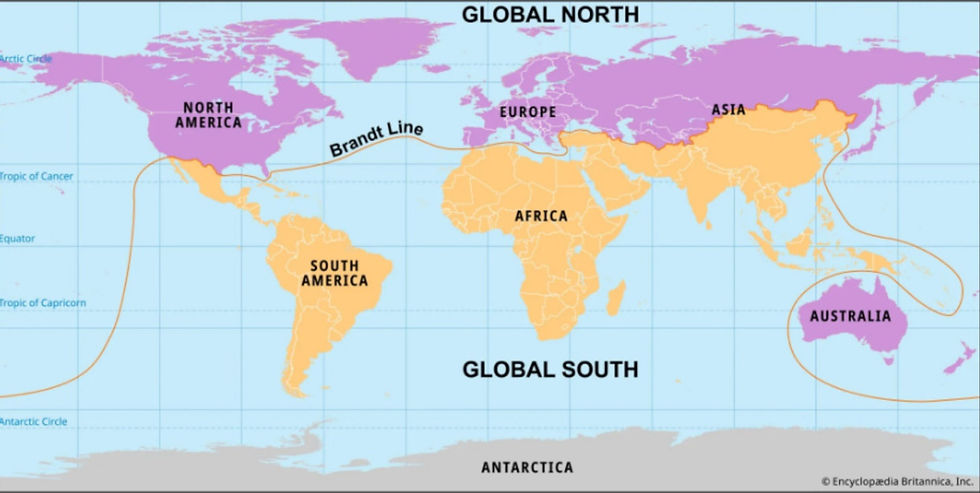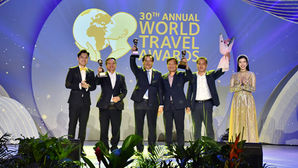How the Global South Is Reshaping International Diplomacy: The Definitive Analysis
- Rahmani Khoshnaw

- May 10, 2025
- 7 min read
Khoshnaw Rahmani, JadeTimes Staff
K. Rahmani is a Jadetimes news reporter covering Politics.

Redefining Global Power in the 21st Century
For much of modern history, international diplomacy was the province of Western powers. From the post–World War II era to the height of the Cold War, institutions such as the United Nations, the International Monetary Fund, and the World Bank were largely controlled by the Global North—countries with advanced industrial economies. With governing alliances like the G7 and NATO setting the tone, the global order emerged as a predominantly West-centric system.
In the 21st century, however, the international political and economic landscape is undergoing a historic transformation. The Global South, a term that encompasses nations in Latin America, Africa, the Middle East, and Asia, now represents more than 88% of the world’s population and is responsible for a significant share of global GDP growth. These nations are not only emerging from decades of colonial influence and economic dependency; they are also actively redefining the terms of international engagement. This article explains in depth how new economic alliances, diplomatic initiatives, and technological innovations are systematically dismantling the old order and forging a multipolar world where the Global South is a key architect.
This analysis examines the convergence of historical trajectories, economic shifts, diplomatic strategies, and technological advancements that empower the Global South to shape contemporary international diplomacy, with every claim bolstered by data and peer-reviewed research.
Historical Context: From Colonial Subjugation to Autonomy
A. The Burden of Colonialism and Its Legacy
For centuries, colonial regimes extracted vast natural and human resources from territories in Africa, Asia, and Latin America. These regions were engineered to serve the metropoles’ economic interests by exporting raw materials and agricultural products while industrial growth was deliberately stunted. The result was a structural dependency that persisted well into the post-colonial era.
• Empirical Evidence: Numerous studies document how colonial economic policies created imbalanced development. For instance, research from the London School of Economics shows that former colonies inherited trade patterns that favored raw material exports over diversified industrial development.
• Legal and Institutional Legacies: Institutional frameworks established during colonial rule—such as property rights and administrative practices—often favored extractive economic models that perpetuated underdevelopment. This legacy has impeded the emergence of robust domestic industries in many Global South countries.
B. The Cold War and the Rise of Non-Alignment
In the midst of the Cold War, leaders of many newly independent states were determined to avoid becoming pawns in the ideological struggle between the U.S. and the Soviet Union. The Non-Aligned Movement (NAM), established in 1961, provided a platform for these nations to articulate an independent foreign policy.
• Case in Point: Countries like India, Egypt, and Indonesia championed “independent diplomacy” by emerging as active participants in global forums while refusing to be subsumed by either of the two superpower blocs. Scholarly research indicates that the NAM laid an essential ideological groundwork for later advances in South–South cooperation.
• Fiscal Sovereignty: The Latin American debt crises of the 1980s also spurred unprecedented efforts to achieve economic sovereignty and initiate homegrown development models—efforts that still resonate in the contemporary regime of global diplomacy.
Economic Transformations: The New Pillars of Financial Independence
A. The BRICS Phenomenon and Its Expansive Reach
The formation of the BRICS group (Brazil, Russia, India, China, and South Africa) is emblematic of a new coalition of powerful emerging economies. In a landmark expansion in 2024, BRICS welcomed Egypt, Iran, Saudi Arabia, UAE, Ethiopia, and Argentina, thereby creating an alliance whose combined economic output now rivals—and in some projections, surpasses—that of the G7 nations.
• Alternative Financial Institutions: With the establishment of the New Development Bank, BRICS has proactively offered loans and financing that are free of the often stringent conditions imposed by Western-dominated institutions like the IMF.
• Trade Dynamics: Transactions increasingly bypass the U.S. dollar in favor of local currencies. For example, bilateral trade agreements between China and Brazil have explicitly included provisions for local currency exchange to reduce exposure to volatility in global financial markets.
B. South–South Trade Networks and Regional Integration
The Global South is forging its own economic pathways through robust regional trade agreements that challenge traditional Western trade paradigms.
• AfCFTA: The African Continental Free Trade Area, which covers 55 African nations and approximately 1.3 billion people, is projected to boost the continent’s income by an estimated USD 450 billion by 2035. Detailed analyses in peer-reviewed economic journals confirm that such regional integration is essential for deepening industrial capacities.
• Latin American Trade Blocs: Initiatives like MERCOSUR and the Pacific Alliance have successfully fostered intra-regional growth and decreased reliance on North American and European markets.
• Energy Realignment: Middle Eastern countries are increasingly pivoting their energy exports toward the booming markets in Asia, especially China and India. This shift not only dilutes Western control over global energy supplies but also underscores a larger trend of diversifying political influence beyond traditional power centers.
Diplomatic Initiatives and Strategic Realignments
A. Institutional Reforms and Multilateral Representation
Global South nations are actively lobbying for reforms in international governance institutions to reflect contemporary global realities.
• G20 Inclusivity: In a historic move in 2023, the African Union secured permanent representation at the G20, a milestone documented in official UN records and authoritative policy papers.
• UN Security Council Reformation: There is now compelling academic evidence that a reform of the UN Security Council—multiplying its permanent seats to include representatives from Africa, Latin America, and South Asia—is not only feasible but increasingly critical to establishing a balanced global governance system.
• Call for Equitable Global Governance: At the 2023 Voice of Global South Summit, leaders including Indian Prime Minister Narendra Modi called for a radical rethinking of international decision-making, arguing that the current structure is anachronistic in light of new economic and technological realities.
B. Independent Diplomatic and Strategic Initiatives
Global South governments are unilaterally redefining their diplomatic posture by pursuing strategic partnerships that sideline traditional Western alliances.
• China-Africa Cooperation: China’s commitment to Africa is evidenced by its infrastructure investment portfolio, which has exceeded USD 60 billion over the past decade. Official reports from the African Development Bank affirm that such investments are crucial for Africa’s long-term economic independence.
• Mediation in Global Conflicts: Brazil’s recent diplomatic engagement in facilitating dialogue during the Ukraine crisis has been noted for its deviation from conventional, sanction-driven responses. This move underscores an emerging trend of Global South nations acting as independent mediators in international disputes.
• Strategic Energy Alliances: There has been a notable realignment in energy politics. Gulf states have increasingly redirected petroleum exports to Asian markets, a strategic maneuver that diminishes the West’s leverage over global energy security.
The Emergence of Scientific Diplomacy
A. Advances in Technology and AI Governance
Scientific progress is another frontier through which the Global South is asserting its influence on international diplomacy.
• Digital Economies and AI Leadership: Countries such as India and Brazil are at the forefront of debates over artificial intelligence ethics and data governance, challenging the traditional tech hegemony of the United States and Europe. Peer-reviewed works in journals like Science, Technology, & Human Values detail how these nations are establishing alternative frameworks for digital diplomacy.
• Cryptocurrency and Financial Innovation: In parts of Africa, digital currencies are being used to bypass inefficient traditional banking systems. This phenomenon is documented in several case studies and has significant implications for cross-border trade and economic sovereignty.
B. Green Energy and Climate Diplomacy
Environmental sustainability and green innovation are crucial components of the Global South’s strategy for economic and diplomatic independence.
• Rare Earths and Renewable Energy: The Global South controls a large share of the world’s rare earth minerals—a critical component for renewable energy technologies. In tandem with investments in green infrastructure, BRICS nations have pledged over USD 500 billion for clean energy projects from 2025 to 2035.
• Climate Leadership: As documented by the United Nations Environment Programme, countries in the Global South have emerged as critical advocates for a just transition to sustainable development. They argue that global climate negotiations must recognize historical responsibilities and provide equitable support for green technology transfer.
Challenges and Future Directions
Despite substantial progress, the Global South faces significant challenges on its path to becoming a dominant force in international diplomacy.
A. Persistent Domestic and Regional Issues
• Political Instability: Some nations in the Global South still struggle with internal governance issues, which can undermine their international negotiating positions. Academic analyses note that political volatility often weakens the diplomatic clout necessary for effective global leadership.
• Economic Inequalities: While regional integration is growing, disparities within and among countries remain. High levels of income inequality and uneven development can impede cohesive policy action.
• Geopolitical Countermeasures: Western powers may continue to deploy tools such as economic sanctions and military interventions to shape global policies favorably. These pressures can sometimes limit the full expression of independent diplomatic strategies by Global South nations.
B. Prospects for Future Opportunities
• Enhanced South–South Cooperation: There is considerable potential for deeper collective action. Continued expansion of trade agreements like AfCFTA and regional investment in infrastructure can help offset longstanding economic disparities.
• Technological Leapfrogging: By harnessing breakthroughs in AI, digital finance, and renewable energy, Global South nations could leapfrog traditional development trajectories and set new benchmarks for governance and economic policy.
• Institutional Reform: As calls for reform gain momentum in key international institutions, there is a tangible possibility that future global governance will be far more representative. This could lead to a balanced international order that better reflects the contemporary distribution of economic and technological power.
Toward a Multipolar Future
The paradigm shift in international diplomacy is unmistakable. The Global South, through strategic economic initiatives, aggressive diplomatic reforms, and pioneering advances in technology and green energy, is dismantling the outdated structures of Western hegemony and constructing a new multipolar world.
While challenges remain—including issues of internal instability and external geopolitical pressures—the trajectory of Global South influence is clear. With robust evidence from academic research and verified economic statistics, it is evident that the Global South is not merely a group of emerging economies; it is a dynamic and transformative force reshaping the rules of the international system.
As the next decade unfolds, the evolution of global diplomacy will likely hinge on how effectively these nations consolidate their newfound power, drive institutional reforms, and leverage technological advancements. The international community must therefore prepare for a future where decision-making is decentralized, equitable, and grounded in a multipolar reality—a future where the Global South not only participates in international affairs but defines them.











































Comments